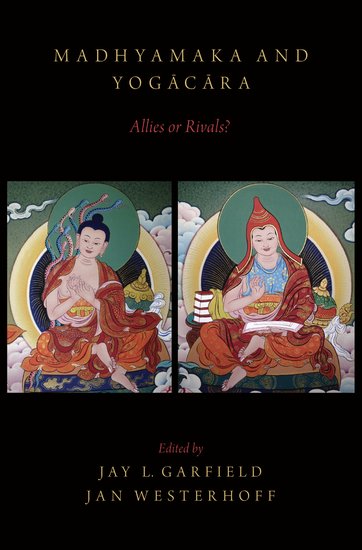
Madhyamaka and Yogacara are the two principal schools of Mahayana Buddhist philosophy. While Madhyamaka asserts the ultimate emptiness and conventional reality of all phenomena, Yogacara is idealistic. This collection of essays addresses the degree to which these philosophical approaches are consistent or complementary.
Indian and Tibetan doxographies often take these two schools to be philosophical rivals. They are grounded in distinct bodies of sutra literature and adopt what appear to be very different positions regarding the analysis of emptiness and the status of mind. Madhyamaka-Yogacara polemics abound in Indian Buddhist literature, and Tibetan doxographies regard them as distinct systems. Nonetheless, scholars have tried to synthesize the two positions for centuries, as in the case of Indian Buddhist philosopher Santaraksita. This volume offers new essays by prominent experts on both these traditions, who address the question of the degree to which these philosophical approaches should be seen as rivals or as allies. In answering the question of whether Madhyamaka and Yogacara can be considered compatible, contributors engage with a broad range of canonical literature, and relate the texts to contemporary philosophical problems.
Reviews:
Warren Lee Todd, Buddhist Studies Review 33:1-2, 2016, 303-307 [link]
Jed Forman, Reading Religion, 27th February 2018
Oren Hanner, Philosophy East and West, 68:2, April 2018, 29-633.
Indian and Tibetan doxographies often take these two schools to be philosophical rivals. They are grounded in distinct bodies of sutra literature and adopt what appear to be very different positions regarding the analysis of emptiness and the status of mind. Madhyamaka-Yogacara polemics abound in Indian Buddhist literature, and Tibetan doxographies regard them as distinct systems. Nonetheless, scholars have tried to synthesize the two positions for centuries, as in the case of Indian Buddhist philosopher Santaraksita. This volume offers new essays by prominent experts on both these traditions, who address the question of the degree to which these philosophical approaches should be seen as rivals or as allies. In answering the question of whether Madhyamaka and Yogacara can be considered compatible, contributors engage with a broad range of canonical literature, and relate the texts to contemporary philosophical problems.
Reviews:
Warren Lee Todd, Buddhist Studies Review 33:1-2, 2016, 303-307 [link]
Jed Forman, Reading Religion, 27th February 2018
Oren Hanner, Philosophy East and West, 68:2, April 2018, 29-633.